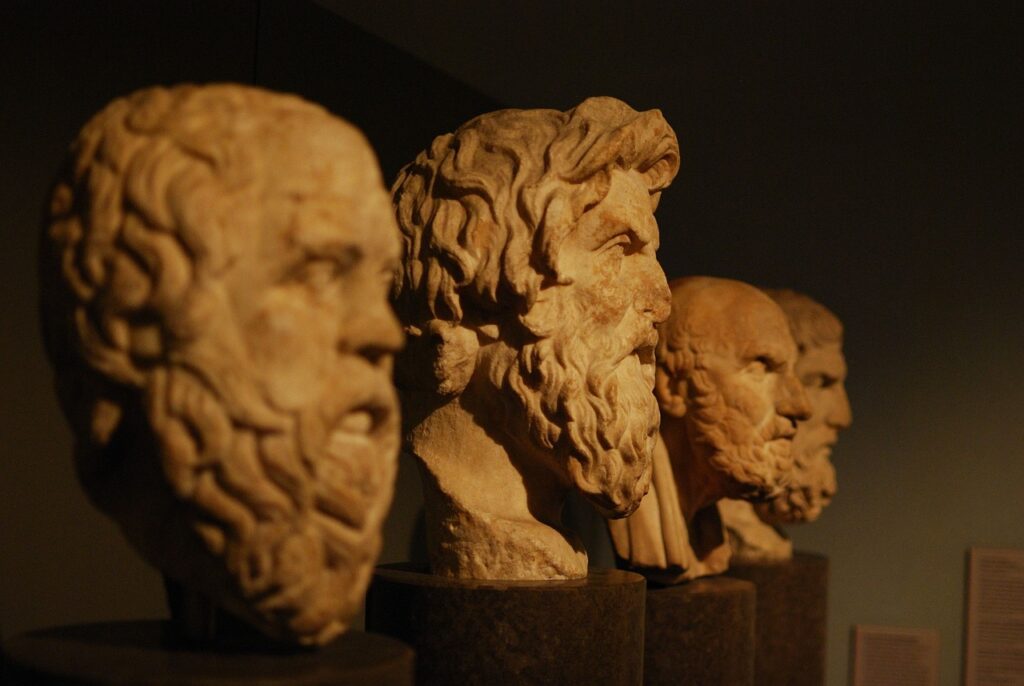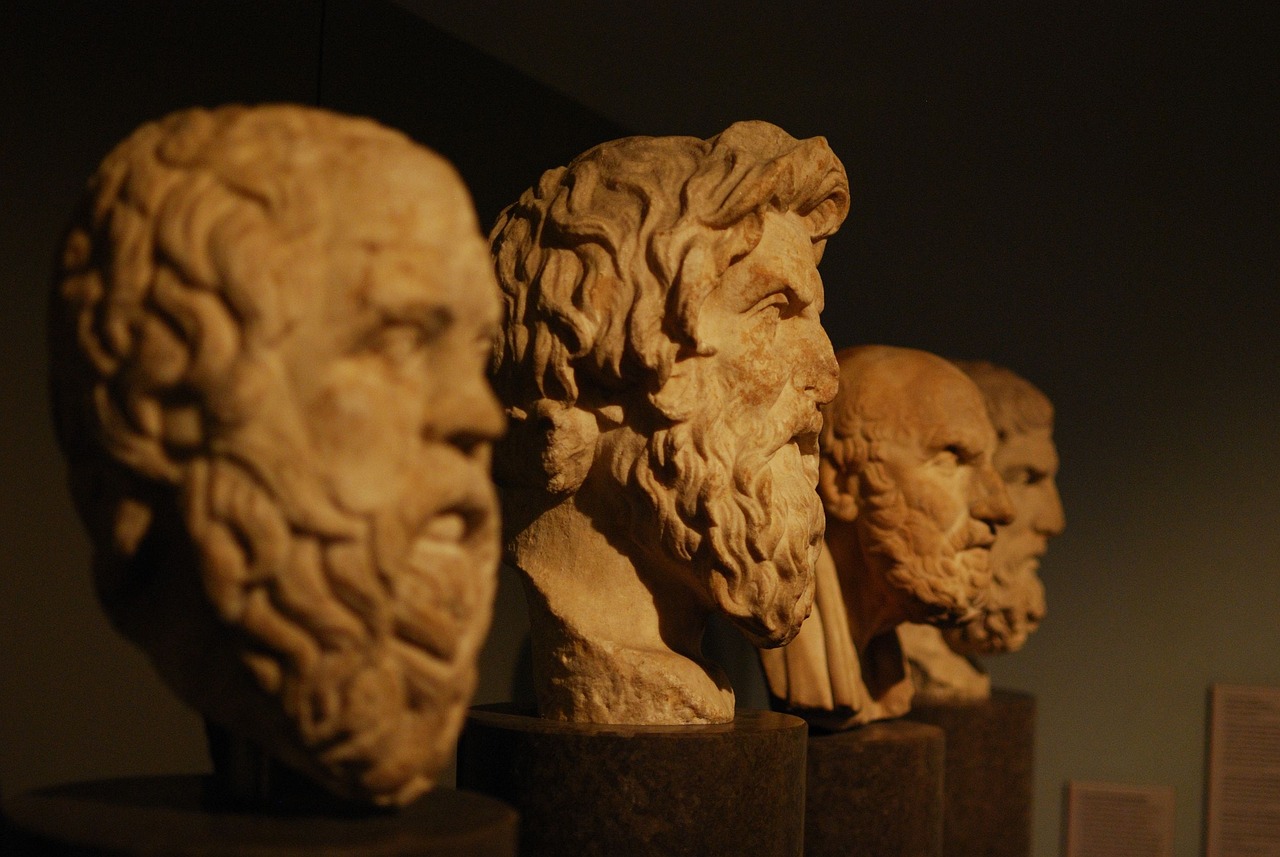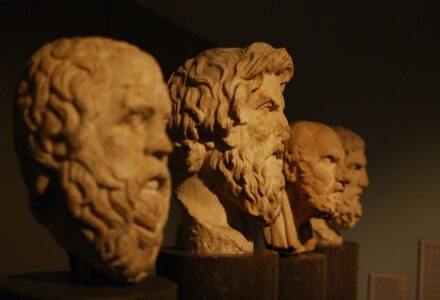Philosophy of Education Philosophers : The philosophy of education encompasses a rich tapestry of ideas, theories, and perspectives that have shaped the way we understand the purpose, methods, and goals of education. Throughout history, numerous philosophers have contributed profound insights and innovative approaches to educational thought, each offering unique perspectives on how we should educate and nurture individuals. From ancient philosophers like Plato and Aristotle to modern thinkers such as John Dewey and Paulo Freire, the philosophy of education has been a dynamic field of inquiry, continually evolving to address the changing needs and challenges of society.
In this list, we will explore the contributions of some of the most influential philosophers of education, spanning various cultures, time periods, and philosophical traditions. Each philosopher brings a distinct perspective to the table, offering insights into the nature of learning, the role of the teacher, the development of moral character, and the cultivation of intellectual curiosity. By examining the ideas of these philosophers, we gain a deeper understanding of the fundamental questions and debates that have shaped educational theory and practice throughout history.
Whether advocating for student-centered learning, emphasizing the importance of moral education, or critiquing traditional schooling practices, each philosopher in this list offers valuable insights that continue to inform and inspire educators, policymakers, and scholars today. As we delve into the philosophies of these thinkers, we embark on a journey through the rich landscape of educational thought, exploring the diverse array of ideas that have shaped our understanding of what it means to educate and be educated.
John Dewey
Dewey believed in experiential learning, emphasizing that education should be based on the experiences of the learner. He advocated for a student-centered approach to education, where learners actively engage with their environment to construct knowledge. Dewey emphasized the importance of democracy in education, viewing schools as laboratories for preparing individuals to participate in democratic society.
Jean-Jacques Rousseau
Rousseau believed in the natural goodness of children and the importance of allowing them to develop according to their innate tendencies and interests. He advocated for a child-centered approach to education, emphasizing freedom, spontaneity, and the importance of nurturing individual talents. Rousseau’s ideas laid the foundation for modern progressive education.
Maria Montessori
Montessori developed the Montessori method, an educational approach based on scientific observations of children’s learning processes. She believed that children are naturally curious and capable of self-directed learning when provided with a prepared environment and appropriate materials. Montessori emphasized hands-on learning, independence, and the holistic development of the child.
Plato
Plato believed that education should aim at the cultivation of virtue and wisdom in individuals. He proposed an educational system that would be based on meritocracy, with individuals being trained according to their natural abilities and talents. Plato’s philosophy of education emphasized the importance of intellectual and moral development in preparing individuals to lead a just and harmonious life.

Aristotle
Aristotle believed that education should aim at the development of both the intellectual and moral virtues in individuals. He emphasized the importance of habituation and practical reasoning in moral education, viewing ethics as a practical science that guides human conduct. Aristotle’s philosophy of education emphasized the cultivation of excellence and the fulfillment of human potential.
Paulo Freire
Freire critiqued traditional banking education and advocated for a more dialogical approach to learning. He believed that education should empower learners to critically analyze and transform their social reality, promoting social justice and liberation. Freire’s philosophy of education emphasized the importance of praxis—the integration of reflection and action—in creating a more just and equitable society.
John Locke
Locke emphasized the importance of individual freedom, tolerance, and the development of rationality in individuals. He believed that education should focus on the cultivation of moral character, practical skills, and critical thinking. Locke’s philosophy of education emphasized the importance of education for the preservation of liberty and the pursuit of happiness.
Maxine Greene
Greene believed that education should foster imagination, creativity, and social justice in individuals. She emphasized the importance of the arts, literature, and philosophical inquiry in education, encouraging students to question the status quo and envision alternative possibilities for the future. Greene’s philosophy of education emphasized the role of education in fostering human liberation and flourishing.
Immanuel Kant
Kant emphasized the importance of autonomy, rationality, and moral responsibility in individuals. He believed that education should cultivate the capacity for independent thought and moral judgment, enabling individuals to act as free and responsible agents in society. Kant’s philosophy of education emphasized the role of education in promoting enlightenment and human dignity.
Herbert Spencer
Spencer believed that education should prepare individuals for their roles in society, emphasizing the importance of adaptation and survival. He advocated for a curriculum that included both practical and scientific knowledge, promoting the idea of “survival of the fittest” in education and society. Spencer’s philosophy of education emphasized the role of education in promoting social progress and individual success.
Nel Noddings
Noddings is known for her work in ethics and the ethics of care in education. She emphasizes the importance of caring relationships between teachers and students as the foundation of a nurturing educational environment. Noddings believes that education should cultivate empathy, compassion, and ethical responsibility in individuals.
Michael Apple
Apple is known for his work in critical pedagogy and educational policy studies. He critiques traditional educational practices and advocates for a critical approach to education that addresses issues of power, ideology, and social inequality. Apple emphasizes the importance of democratic participation and social justice in education.
Bell hooks
Books is known for her work in feminist pedagogy and critical theory. She believes that education should be liberatory and empowering, especially for marginalized groups. hooks emphasizes the importance of intersectionality, dialogue, and self-reflection in education, challenging oppressive structures and promoting social change.
Alfred North Whitehead
Whitehead was a philosopher known for his process philosophy, which emphasizes the interconnectedness of all things. He believed that education should focus on the cultivation of creativity, curiosity, and the love of learning. Whitehead emphasized the importance of experiential learning and the integration of knowledge.
Also Read: The Philosophy of Aesthetics and Beauty: Exploring the Nature of Art and Its Appeal
William James
James was a philosopher and psychologist known for his contributions to pragmatism. He believed that education should be practical and experiential, preparing individuals for active participation in society. James emphasized the importance of experimentation, problem-solving, and adaptability in education.
Martin Buber
Buber was a philosopher known for his existentialist philosophy of dialogue. He believed that education should foster authentic relationships and encounters between individuals, emphasizing the importance of mutual respect and understanding. Buber emphasized the role of dialogue and interpersonal connection in learning.
Ivan Illich
Illich was a philosopher and social critic known for his critique of institutionalized education. He believed that traditional schooling often hinders true learning and personal development. Illich proposed alternative models of education that empower individuals to take control of their own learning and pursue their interests.
Jacques Rancière
Rancière is a philosopher known for his work in critical theory and political philosophy. He believes that education should challenge hierarchical structures of power and privilege, encouraging individuals to think critically and act autonomously. Rancière emphasizes the importance of equality and emancipation in education.
Charlotte Mason
Mason was an educator known for her educational philosophy, which emphasizes the importance of living books, nature study, and narration in children’s learning. She believed that education should be rooted in living ideas and experiences, fostering a love of learning and a sense of wonder in children.
Howard Gardner
Gardner is a psychologist known for his theory of multiple intelligences. He believes that individuals possess different types of intelligence, and education should be tailored to accommodate and develop these diverse intelligences. Gardner’s theory has had a significant impact on educational practice, encouraging educators to adopt a more flexible and inclusive approach to teaching and learning.
Carl Rogers
Rogers was a psychologist known for his person-centered approach to therapy. He believed that education should be student-centered, emphasizing empathy, authenticity, and unconditional positive regard. Rogers advocated for a supportive learning environment where students are free to explore their interests and experiences.
Also Read: 10 Times Albert Einstein Quoted a Philosopher of Pessimism
Albert Bandura
Bandura was a psychologist known for his social learning theory. He emphasized the role of observation, imitation, and modeling in learning. Bandura believed that education should provide opportunities for students to observe and imitate desirable behaviors, promoting self-efficacy and skill development.
Lev Vygotsky
Vygotsky was a psychologist known for his sociocultural theory of cognitive development. He emphasized the role of social interaction, cultural context, and language in shaping cognitive processes. Vygotsky believed that education should scaffold students’ learning, providing support and guidance as they engage in increasingly complex tasks.
George Herbert Mead
Mead was a philosopher and sociologist known for his theory of symbolic interactionism. He believed that education should facilitate the development of self-awareness and identity through social interaction and communication. Mead emphasized the importance of language and social relationships in shaping individuals’ understanding of themselves and others.
Thomas Jefferson
Jefferson was a Founding Father of the United States and an advocate for public education. He believed that education was essential for the success of a democratic society. Jefferson emphasized the importance of universal education for all citizens, promoting civic virtue, and preparing individuals for active participation in self-government.
Johann Friedrich Herbart
Herbart was a German philosopher and educator known for his work in educational psychology and pedagogy. He developed a systematic approach to education based on psychology and ethics. Herbart emphasized the importance of interest, instruction, and moral character in teaching and learning.
Also Read: 10 Effective Strategies to Avoid the Bandwagon Fallacy
Rudolf Steiner
Steiner was an Austrian philosopher, social reformer, and founder of anthroposophy. He developed the Waldorf education system, which emphasizes holistic development, artistic expression, and spiritual growth. Steiner believed in the importance of educating the whole child—body, mind, and spirit.
Mortimer Adler
Adler was an American philosopher and educator known for his work in the field of classical education. He advocated for a return to the classical liberal arts tradition, emphasizing the importance of critical thinking, reading, and discussion in education. Adler’s ideas have had a lasting impact on educational philosophy and curriculum design.
John Stuart Mill
Mill was a British philosopher and political economist known for his contributions to utilitarianism and liberalism. He believed that education should promote individual freedom and happiness while also benefiting society as a whole. Mill emphasized the importance of intellectual development, personal autonomy, and the pursuit of higher pleasures in education.
Friedrich Nietzsche
Nietzsche was a German philosopher known for his critiques of traditional morality, religion, and culture. His ideas about education emphasize the importance of intellectual independence, creativity, and self-overcoming. Nietzsche believed that education should encourage individuals to question authority, challenge conventional wisdom, and pursue their own path of self-realization.
These thinkers offer diverse perspectives on the purpose, goals, and methods of education, enriching the discourse on educational philosophy.
Also Read: 10 Effective Ways to Respond to Ad Hominem Attacks . Read about Philosophy of Education


